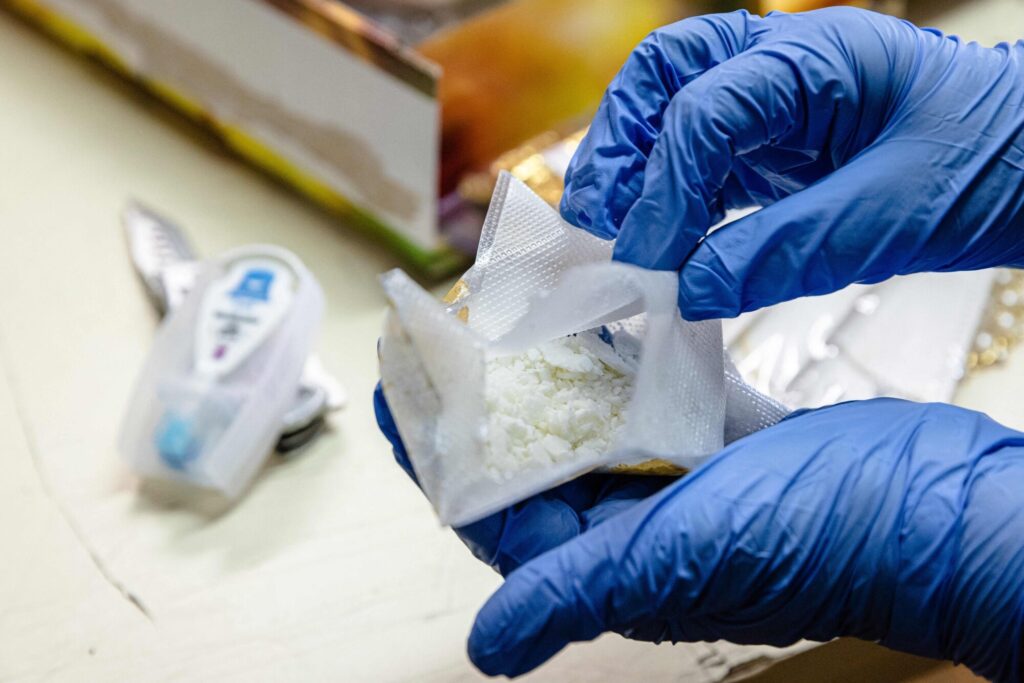
Welcome to my newsletter on the cannabis and psychedelics industries. This week, I take a look at companies that are positioning themselves to benefit from a potential wave of decriminalization of hard drugs, including cocaine.
‘Safe’ supply?
If “what are you smoking?” used to the be the skeptical response to those who said marijuana would one day be legal in more than 38 US states, the new catchphrase might be “what are you snorting?”
Earlier this month, a Canadian company, Safe Supply Streaming, did a reverse takeover with a psychedelics company in order to prepare for listing on a small-cap stock exchange in Canada. Its thesis is a “third wave” of relaxing drug laws, following those that have opened up use of marijuana and psychedelics. The next wave, the company predicts, will cover hard drugs, like heroin and cocaine.
The company wants to use its “streaming” model to invest in addiction clinics, fentanyl test-strip makers and other businesses that might benefit from such a shift, as well as energy drinks that contain coca leaves (but without cocaine, just like Coca-Cola beverages).
The development shows shifting attitudes toward hard drugs as their decriminalization in places including Oregon and British Columbia has stoked business interest. Early investors tout the idea that just as legal, regulated marijuana was supposed to quash drug crime and obliterate underage use, creating a “safe supply” of hard drugs could do the same — and also solve the problem of fentanyl contamination.
The idea is pitched to appeal to governments desperate for policy solutions to soaring overdose deaths. But it’s bound to generate skepticism. Even the much more widely accepted legalization of marijuana has been showing severe downsides, as seen in problems that have surfaced in Colorado, Washington and New York.
Even without relaxed laws, illegal cocaine production is surging: Colombian cocaine output has soared and is even set to overtake the country’s oil exports. Its illegal use has brought with it corruption across the Americas and the infiltration of one of the world’s top shipping companies.
But Safe Supply Streaming isn’t the only company building a business model around the possibility of more cocaine use — legal or otherwise.
In February, Lucy Scientific Discovery, a Victoria, British Columbia-based company, announced it was looking to expand its licensing to manufacture cocaine, heroin and other drugs. Lucy, which already has Canadian licenses to make limited amounts of psilocybin, MDMA, LSD and mescaline for research, said that “the shift toward a public-health response to the drug crisis will provide greater opportunities for people who use substances to connect with a growing range of harm reduction and treatment options.”
Shares are down 81% since then. The company didn’t immediately return an email seeking comment about its application.
Other companies in Canada are also touting their dealer’s licenses from the country’s health regulator that allow them to provide substances such as cocaine for limited purposes. One, Adastra Holdings, a cannabis company, had to retract a press statement that suggested it could sell cocaine. The mishap led to a class-action lawsuit.
Filament Health, a Vancouver-based company doing research on psychedelic drug candidates, last week announced a $2 million private placement from Negev Capital. According to the company’s regulatory filing, cocaine is among the substances for which it has a dealer’s license.
“At Filament, we believe that a pharmaceutical drug made from coca leaf may have potential for the treatment of several mental-health indications including ADHD,” the company’s co-founder Ben Lightburn said in an emailed response to a question about whether it considered its dealer’s license for cocaine a significant asset. Filament’s license speaks to its high safety standards, he added, and the company recently imported coca leaf from Peru in partnership with the Peruvian government. He said Filament is beginning research on the potential for ADHD treatment.
According to a search of regulatory filings and earnings calls, other companies that make cocaine-related products include Intelligent Bio Solutions, which makes a system to screen for cocaine, opioids and other drugs in the workplace, and Omeros Corp., which is which is working on an oral drug to treat cocaine-use disorder after receiving a grant this year from the National Institute on Drug Abuse.
H/T: www.bloomberg.com



